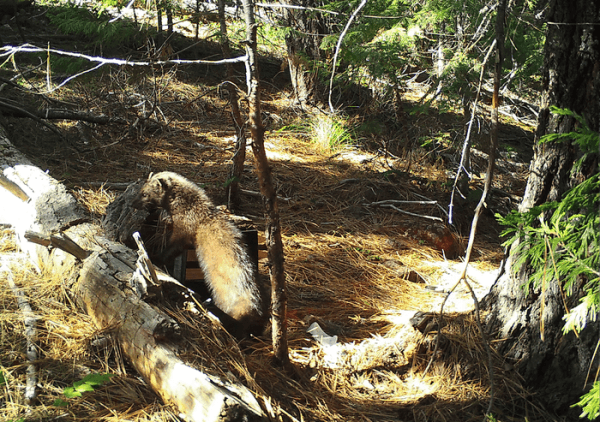The recovery of the fisher, a charismatic, long-tailed forest carnivore, will likely be hindered by the increasing frequency and intensity of future wildfires, new research by Oregon State University indicates.
A long-term monitoring program along the Oregon-California border showed that fisher abundance declined following three mixed-severity wildfires and that salvage logging also affected fisher populations negatively, said David Green of the OSU Institute for Natural Resources.
“We estimated a 27% reduction in the total number of fishers within our study area following the fires,” added Green, who led the study published today in Ecosphere.
Fierce and secretive, the fisher is an animal of conservation concern whose numbers dwindled in the 19th and 20th centuries due to fur trapping and logging. It’s a member of the Mustelidae family, which also includes wolverines, badgers, otters and minks, and it is native only to Canada and the northern United States.
“The fisher has a limited distribution, and rapid changes to forest structure could threaten its long-term persistence,” Green said.
Read more at: Oregon State University
Fisher, midsize carnivore of N. American forests. (Photo Credit: Oregon Department of Fish and Wildlife)


